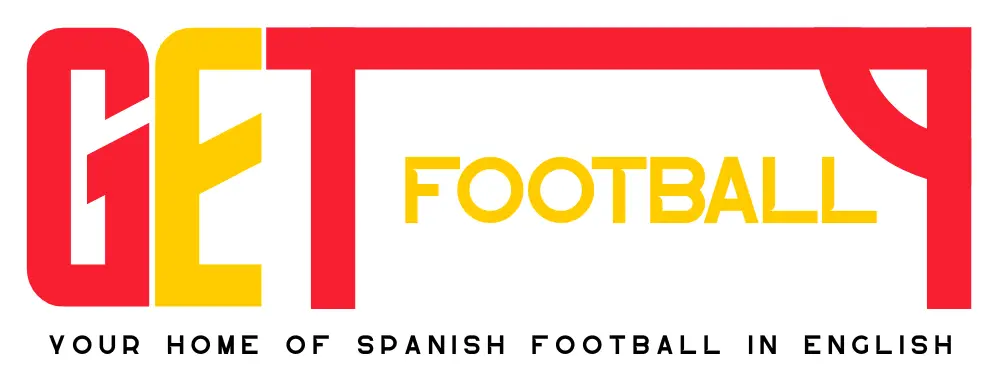There may well have been Spanish players of his generation more prolific in front of goal than Juan Carlos Valerón, and many who were undoubtedly more athletic, but few were as technically gifted and universally admired as El Flaco.
The youngest of six, Juan Carlos Valerón was born in the town of Arguineguín on the south coast of Gran Canaria. While he was a youth player, his father passed away, an event which would have a lasting impact on his life; not least because it drove his family into a precarious financial situation in which as an unpaid youth player, the young Juan Carlos was often left without money for clothes and other basic necessities.
Valerón also faced various challenges from a footballing perspective during his early years. At the time of his father’s death, his sights were set firmly on making it at his local club CD Arguineguín. However, his noticeably underdeveloped frame meant that he was easily bullied off the ball by opposition players, an ever-present and seemingly insurmountable barrier that more than once led him to question if he would never make it as a professional.
“There’s no getting around it, he was lanky – about fifty kilos at a push – but he had real technical ability,” says Juanma Rodriguez, Valerón’s coach at Arguineguín. “You could knock the boy over with a feather…people used to say to me that we ought to build him a little enclosure on the pitch so he could play by himself without anyone going near him.”
Nevertheless, it was thanks to Rodríguez and other far-sighted youth coaches that Valerón continued to progress through the categorías inferiores of the Canarian club, a stroke of good fortune for which the man himself is emphatically grateful. “People said I was weak, soft – but Juanma put his faith in my ability as a player over any of my physical attributes,” says Valerón. As his resilience and physical strength improved, his ability, quick-mindedness and intelligence as a player – qualities that would go on to make him a fans’ favourite at every club he subsequently went on to play for – became progressively more evident.
Starting out
It was in the 1993/94 season that Valerón received the first considerable break that would propel him towards a career in professional football. His older brother Miguel Ángel, then himself a promising youth player at UD Las Palmas, suggested to second-team coach Paco Castellano that someone from the club should go to have a look at Juan Carlos. A scout was duly despatched to take the 66km drive south to Arguineguín and he came back with a glowing review of the youngster, who was quickly signed up having been identified as a promising young talent. Valerón played seven games towards the end of the season for Las Palmas, the last of which ironically came in a 7-0 hammering of CD Arguineguín in which he put two past his old club.
In the 1995/96 season, he made his debut with the first team in Segunda B at the age of 20 and helped the club gain promotion to the second tier of Spanish football. Valerón would play a total of 54 games in his first spell at Las Palmas before moving to RCD Mallorca for the princely sum of 300,000 pesetas, a considerable amount at the time for a player who had never played in the top flight.
After the initial shock of pre-season had passed, Valerón consolidated his place in the Mallorca starting lineup. As a fundamental part of the club’s qualification for Europe and journey to the 1998 Copa del Rey final that year, his time at Mallorca is best remembered for a number of outstanding moments of individual brilliance, including a stunning dribbling goal scored at the Estadio Lluís Sitjar against Athletic Club which helped Mallorca to a 5th place finish in the league.
Joining Atlético
Mallorca lost that year’s Copa del Rey final to Louis Van Gaal’s Barcelona on penalties – a heartbreaking end to a remarkable season for the Balearic side. That summer, Valerón was informed by president Bartolomé Beltrán that the club had reached an agreement with Atlético Madrid, and the 23-year-old was once again on the move.
“I’d been in professional football for such a short time, so can you imagine what it was like for me to get the call from a team like Atlético Madrid? It was a dream.”
To add to the star system that Valerón suddenly found himself in at Atlético Madrid, his new manager was none other than Arrigo Sacchi, legendary manager of the AC Milan side who had for a time dominated European football, winning back-to-back European Cups in 1989 and 1990. Sacchi himself had not signed Valerón, and the Italian was reportedly confused by the decision to bring him to the club. His lanky frame and insufficient experience at the top level were the primary reasons behind Sacchi’s initial hesitancy to include him in his plans, as teammate Kiko Narváez explained in a 2015 Canal+ documentary ‘La Sonrisa del Flaco‘ about Valerón’s career.
“The manager’s immediate reaction when he saw Juan Carlos was that he simply didn’t understand how this guy could be here. El Flaco was really skinny and had clearly never set foot in the gym, relying more on his talent and quality than any physical attributes. The manager wasn’t really aware of his ability at first, and this led him to conclude that there was no way he could ever give this guy a game.”
Given Sacchi’s attitude, it looked like Valerón’s physique had once again become an issue as it had been all those years previously at CD Arguineguín. However, despite his early scepticism, Sacchi provided Valerón with the chance to shine in a string of pre-season matches; once aware of the talent he had at his disposal he went on to make him a permanent fixture in the Atlético starting lineup.
Sacchi’s time at the Vicente Calderón was ultimately forgettable, as the side ended the 1998-1999 season in a disappointing 13th place. They did qualify for Europe having finished as runners-up in the Copa del Rey, and El Flaco’s performances were notable during a campaign in which positives were few and far between. Far from being an impediment, his lanky frame granted him leverage in certain situations, which combined with Valerón’s unique footballing intelligence allowed for the creation of goalscoring opportunities where there appeared to be none.
“Early on I realised that I would always have to be on my toes with Juan Carlos. Even when you believed that there was nothing happening, you had to be aware that he was in complete control of everything that was going on around him,” says Kiko. “I used to say to him that he was like an eel – it was as if he had no bones. From a seemingly impossible position, he had this ability to turn his hips or bend his ankle round to produce a pass or a flick on for me – he could always create something.”
Following Sacchi’s departure from Atlético after just one season in charge, the board led by now infamous club president Jesús Gil appointed Claudio Ranieri as manager, and the latter was awarded carte blanche to go out and spend 35 million euros on several high-calibre signings such as Jimmy Floyd Hasselbaink, Joan Capdevila, Carlos Gamarra and Hugo Leal, among others.
Despite the original optimism, the 1999-2000 season would prove to be one of the most painful in recent memory for Los Colchoneros, as Gil’s spectacular mismanagement and dodgy dealings off the field unquestionably exacerbated the side’s already poor performance on it. Following a complete collapse in form in the second half of the season that included a run of 15 games without a win, Atlético were relegated. Several senior players including Valerón would consequently depart that summer as Los Rojiblancos readied themselves for the onerous task of regaining promotion to the Primera División.
Super Depor
In the summer of 2000, still somewhat shaken by the experience of relegation with Atleti, Valerón was signed by then-champions of La Liga Deportivo La Coruña. His first few years at the club were – in his own words – spectacular. He was a fundamental part of the Depor side that clinched the famous Centenariazo, providing the assist for Diego Tristán in the 2002 Copa del Rey final in a 2-1 victory over Real Madrid at the Santiago Bernabéu. Valerón would also play a significant role in several famous Champions League encounters; in particular, his goal in the 4-0 demolition of AC Milan in the quarter-finals at the Riazor and his beautifully crafted assist for Roy Makaay in Depor’s 3-2 away win over Ottmar Hitzfeld’s Bayern Munich have gone down as some of the most memorable moments in the club’s history.
For all his success and recognition as a professional, Valerón’s career was constantly hampered by several key injuries that unquestionably affected his consistency and robbed us all of more moments of greatness akin to those seen during the years of Super Depor in the early 2000s. His fitness had been an issue since before he arrived in Galicia; Deportivo signed him knowing full well that he harboured significant long-term health complications, including chronic pain and inflammation in the pelvic area which habitually flared up after games. Years later, club president Augusto César Lendoiro revealed that the concern surrounding Valerón’s fitness was such that he was even advised against signing him by the Depor medical staff.
Anti-inflammatories and meetings with physios were a regular part of El Flaco’s time at the club, who as a matter of routine provided him with three or even four days of rest each week in order to recover from matches. However, some setbacks were simply unavoidable. At the height of Super Depor in 2002, Valerón suffered a broken leg in the second half of a match against Valladolid after a horror challenge by Juan Manuel Peña, and in 2006 he damaged his cruciate ligament twice in the space of six months. This unfortunate event kick-started an agonising run of injuries from which Valerón would not return until midway through the 2007/08 campaign.
By this time, the prominence of the great Depor side which had humbled the likes of Bayern Munich, Manchester United and Arsenal had long since begun to fade, and the club would even be relegated in the 2010/11 season. After helping his team back to La Liga after a one-year absence, Valerón decided that the following season would be his last at the Riazor. He left the club in June 2013, having taken part in 422 games all competitions for the Galicians, who once again dropped down to Segunda. El Flaco would finish his professional career after returning for one final spell with UD Las Palmas, retiring in 2016 at the age of 40 as the fourth oldest player in the history of La Liga.
To watch Juan Carlos Valerón was to engage in a celebration of footballing intelligence, and to be appreciative of the fact that you were witnessing something truly special. The abiding memory of those fortunate enough to have seen him play during his golden years at the Riazor is that of a player of outstanding perceptiveness and technique that set him apart from others of his generation. If posterity is indeed the best judge, El Flaco will be seen as one of the finest players ever to have graced the Spanish game for many years to come.
GSFN | Tommy Hay










